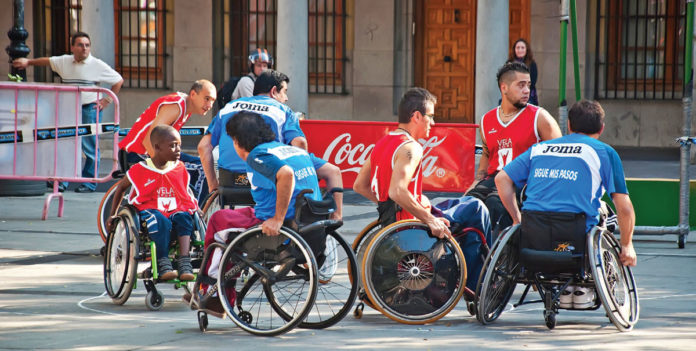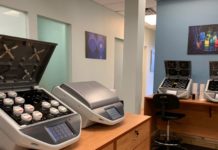Growing demand and new legislation have inspired St. Lawrence College to develop new programs that will produce career ready graduates poised to step into jobs in Canada’s high-demand addictions and mental health and therapeutic recreations fields.
 “We know our graduates get jobs—SLC is proud to have a graduate employment rate of 87.2 per cent,” said Glenn Vollebregt, the college’s President and CEO. “By working with our community and industry partners to develop programs that we know are in demand, we continue to provide our students with the best possible programs that will prepare them for the careers of the future.”
“We know our graduates get jobs—SLC is proud to have a graduate employment rate of 87.2 per cent,” said Glenn Vollebregt, the college’s President and CEO. “By working with our community and industry partners to develop programs that we know are in demand, we continue to provide our students with the best possible programs that will prepare them for the careers of the future.”
The college has been developing three new programs: a one-year Addictions and Mental Health post-graduate certificate program and a two-year Mental Wellness and Addictions Worker diploma as well as a one-year post-graduate certificate in Therapeutic Recreation. All three will launch in September 2017.
Demand for the new programs comes as federal and provincial governments are introducing new initiatives to expand mental health services as well as from a growing recognition that opioid addiction is spiraling out of control in this country and needs to be addressed.
The one-year post-graduate Mental Wellness and Addictions Worker diploma will enable anyone already working in the community services field—police officers, nurses, paramedics, and others— to specialize in the two specific issues of addictions and mental health.
The two-year Mental Wellness and Addictions Worker diploma, on the other hand, is geared toward learners coming right out of high school, mature students, and existing college students who are looking to specialize in addictions and mental health.
Job opportunities for graduates will be with community and mental health and addictions services organizations and in residential treatment centres, hospitals, children’s centres, services for women and for aboriginal people, homeless shelters, crisis response services, youth and family services, and ethno-cultural centres.
Both programs use what the college calls a “holistic client-centred biopsycho- social-plus approach” that will teach evidence-informed, responsive, culturally-sensitive client-centred screening and assessment. Students will develop the ability to not only understand the causes of addictions and mental health but to formulate specific treatment plans.
Both programs, which will be offered at the Brockville campus, will provide placement opportunities in their final semesters.
The third new program—the Therapeutic Recreation post-grad certificate—comes on the heels of new provincial legislation. The Long-Term Care Homes Act now requires all longterm care homes in Ontario to have someone on staff with a university or college therapeutic recreation credential. In response, St. Lawrence College began developing the Therapeutic Recreation post-grad certificate.
While the need for the Therapeutic Recreation certificate was originally identified to address the changing needs of our local employers, St. Lawrence College saw that demand would also grow due to the aging population and an increased emphasis societally towards inclusion of all. The college, therefore, saw wider opportunity.
When it launches next year, the Therapeutic Recreation certification will be open to anyone with a twoyear diploma or a degree in health, community services, or social services. It will appeal to two types of learners: recent college and university graduates as well as people already working in the health-care or community or social services fields who need the new credential due to legislative changes.
One feature that sets the college’s Therapeutic Recreation certificate apart is that it offers an entrepreneurship course for learners who are interested in going into private practice. The college also provides a lengthy placement in its last semester.
While long-term care facilities and retirement homes are the largest employers of recreational therapists, there are many other opportunities in adult day programs, hospices, hospitals and health-care agencies, rehabilitation centres, residential facilities, mental health agencies, addiction services and community agencies and schools.
The Therapeutic Recreation certification, which will run out of the college’s Kingston campus, is developed to meet Therapeutic Ontario’s Essential Competency Framework which ties into the academic requirement of the R/TRO designation with Therapeutic Recreation Ontario.
















